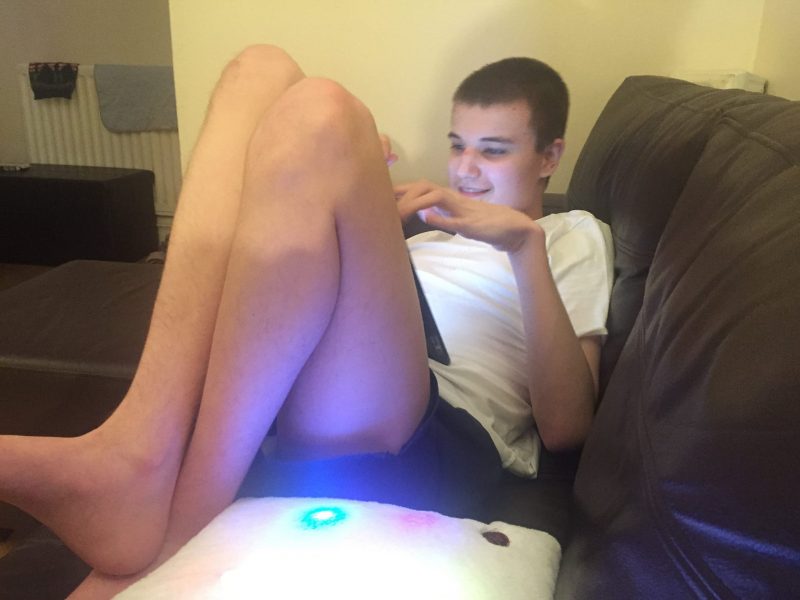Around 20% of children and young people have long-term additional needs or disabilities of some kind. That’s about 2.5 million in the UK alone.
Many of them, and their families feel excluded from a wide range of social activities.
So how can we reach out to, and meet, the needs of these children and their families?
Schools, uniformed groups, children’s/youth clubs, churches, entertainment venues and more often suggest that what they offer is available for everyone, but is that true?
And if it is, have the bare basics been covered, or have they truly made every effort to enable everyone to fully participate?
I believe that there are three key steps that can be taken by organisations, and the people working or volunteering there, alongside people with additional needs or disabilities and where appropriate their families.
Three steps that can lead to all that is offered to be available to all, participated in by all, and a sense of common purpose or community experienced by everyone.
- Accessible
Step one is to make it possible for everyone to access what is being offered. There is a part of this journey that needs to be taken well before practical things start being done, and that comes in two ways:
A willingness to adapt – a change of heart to reach out to everyone, equally, and to be prepared to adapt what is offered to meet the needs of all.
A willingness to engage – recognizing that the people who know best how to adapt what is offered to suit their needs are people with additional needs or disabilities themselves and where appropriate their families.
Fulfilling their desire that when meeting their needs, they should be involved at every stage; “Nothing about us without us.”
This willingness can then lead to working together for the mutual benefit of all, ensuring that any practical or other adaptations needed are implemented well. Accessibility isn’t just about ramps and wide doors though, it can cover a wide range of adaptations.
It can also be about how children, young people, or adults with additional needs or disabilities, and their families are, for example, able to find out about local groups, book onto camps or trips, and be able to attend these activities.
It is about the suitability of the website, process, programme, or venue etc. rather than the person.
- Inclusive
Having worked with people with additional needs or disabilities to ensure that everyone can access what is being offered, step two is to ensure that everyone can fully engage with the activity or event.
In the context of children, young people or adults with additional needs or disabilities, this refers to how any obstacles or barriers that could lead to exclusion are removed.
It is about the club, group, camp, trip etc. ensuring that what it offers works for everyone, rather than a disabled person being expected to ‘fit in’.
The Equality Act 2010 provides a legal framework to protect people with a range of ‘protected characteristics’ including disabled people, from exclusion due to direct or indirect discrimination against them because of their disability (or, in certain cases, having a disabled relative).
But it shouldn’t be about merely meeting the requirements of the law, it should be about that genuine, heartfelt, willingness to work together to create an environment where everyone can join in, everyone can learn from each other, everyone can fully participate, everyone can take advantage of all of the opportunities available equally.
- Belonging
While ‘inclusive’ is a big step forward from ‘accessible’, there is a third big step that can, and should, be taken in order for everyone to fully be part of a community; belonging.
‘Accessible’ is about ensuring that everyone can come.
‘Inclusive’ is about ensuring that everyone can participate. But ‘belonging’ means that everyone is accepted, valued, appreciated. It means that they are genuinely missed for all the right reasons when they aren’t there.
That they have every opportunity to lead, serve, get involved in any way that they would like to.
That they are part of a community, a family, that shares a common purpose.
Anything less than ‘belonging’ is second best.
That isn’t to entirely dismiss the efforts many make to ensure that what they do, what they offer, is ‘accessible’ and ‘inclusive’, but to encourage them to work together with people with additional needs or disabilities, and their families, to press on to achieve belonging for all.
Because when belonging is for all, it benefits all.
A club, group, church, school, event etc. that doesn’t create an environment where everyone belongs is missing out, is not all that it could be. And why would anyone want to settle for that?
So, let’s all strive together to make belonging for all a reality, in whatever way we can. Let’s all be community, ‘family’, together…
